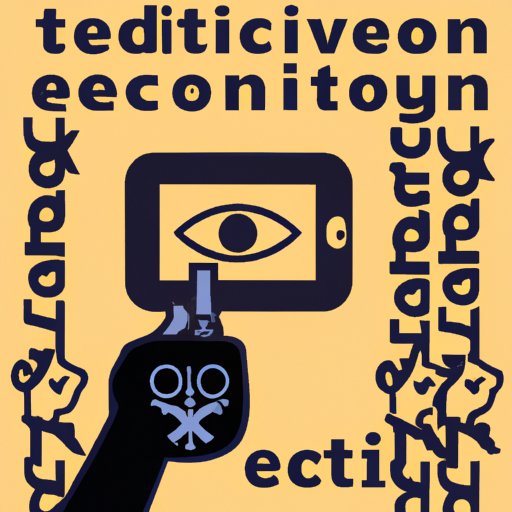Introduction
Tyranny is defined as a government in which absolute power is exercised by one ruler or a small group of individuals. Throughout history, tyrants have relied on various methods to maintain their power, such as oppressive laws, surveillance, censorship, and propaganda. In recent years, technology has become an increasingly important tool for tyrants and authoritarian governments to surveil, manipulate, and control their citizens.
Exploring the Role of Technology in Authoritarian Regimes
The use of technology to strengthen authoritarian rule is nothing new. In the past, oppressive regimes have used technologies such as radio and television to broadcast propaganda and manipulate public opinion. Today, however, the scope of technology used by authoritarian governments has expanded significantly, with new technologies such as facial recognition software, predictive analytics, and artificial intelligence being used to monitor and control citizens.
One of the most widespread uses of technology in authoritarian regimes is surveillance. Governments use a variety of techniques to track and monitor citizens, such as collecting data from social media sites, using GPS tracking, and installing cameras in public places. This type of surveillance allows governments to keep tabs on their citizens, which helps them to identify and suppress any potential opposition or dissent.
In addition to surveillance, authoritarian regimes also benefit from the use of technology in other ways. For example, digital tools can be used to manipulate public opinion, spread propaganda, and restrict access to information. This allows governments to control the narrative and ensure that only approved information is seen by citizens.
The use of technology also provides economic benefits to authoritarian regimes. By controlling the flow of information and manipulating public perception, governments are able to shape the economy in ways that benefit those in power. For example, they can limit access to certain products or services, giving them more control over prices and ensuring that certain businesses remain profitable.

The Impact of Social Media on Repressive Regimes
Social media platforms have become an integral part of many people’s lives, providing a convenient way to stay connected and share information. However, these same platforms can also be used by authoritarian governments to restrict freedom of expression and to monitor citizens. In China, for example, the government has implemented a system of “social credit scores” which assigns citizens a score based on their online behavior. Those with lower scores are restricted from accessing certain services, such as travel or banking.
In addition to monitoring citizens, authoritarian governments also use social media to censor content and spread propaganda. For example, in Russia, the government uses bots to manipulate public opinion by flooding social media sites with pro-government messages. This type of manipulation is difficult to detect, making it an effective tool for controlling public opinion.
The Inevitable Rise of Techno-Fascism?
As technology continues to advance, so too does its potential for abuse by authoritarian regimes. Technologies such as facial recognition software, predictive analytics, and artificial intelligence can be used to create powerful systems of control and surveillance. These systems can be used to monitor citizens and restrict their freedoms, allowing governments to consolidate power and limit opposition.
The use of technology to oppress citizens also has serious implications for human rights. As technology becomes more advanced, it becomes easier for governments to target and punish those who express dissenting opinions or challenge the status quo. This can lead to a decrease in civil liberties and an increase in repression.
Conclusion
In conclusion, it is clear that technology plays a significant role in authoritarian regimes. Through surveillance, manipulation, and censorship, governments are able to control their citizens and consolidate power. In addition, the use of technology to oppress citizens has serious implications for human rights. To combat this growing threat, we must develop solutions that protect civil liberties while still allowing governments to use technology to improve the lives of their citizens.
(Note: Is this article not meeting your expectations? Do you have knowledge or insights to share? Unlock new opportunities and expand your reach by joining our authors team. Click Registration to join us and share your expertise with our readers.)
